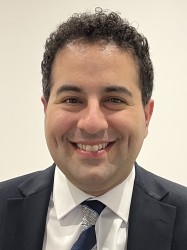BibTex format
@article{Monaghan:2021:10.3390/cells10113234,
author = {Monaghan, TM and Duggal, NA and Rosati, E and Griffin, R and Hughes, J and Roach, B and Yang, DY and Wang, C and Wong, K and Saxinger, L and Pui-Bakovi, M and Vukovi, F and Klicek, F and Lauc, G and Tighe, P and Mullish, BH and Miguens, Blanco J and McDonald, JAK and Marchesi, JR and Xue, N and Dottorini, T and Acharjee, A and Franke, A and Wong, GK-S and Polytarchou, C and Yau, TO and Christodoulou, N and Hatziapostoulou, M and Wang, M and Russell, LA and Kao, DH},
doi = {10.3390/cells10113234},
journal = {Cells},
title = {A multi-factorial observational study on sequential fecal microbiota transplant in patients with medically refractory Clostridioides difficile infection},
url = {http://dx.doi.org/10.3390/cells10113234},
volume = {10},
year = {2021}
}

